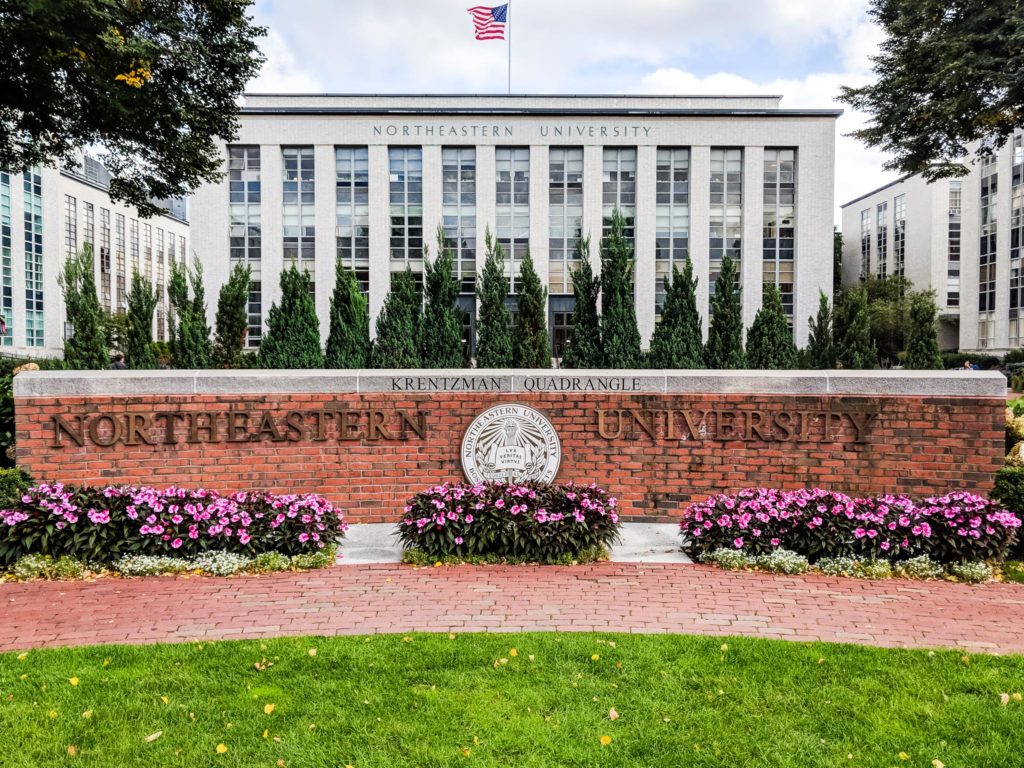By Alison Booth, news correspondent
The Intergovernmental Panel on Climate Change, or IPCC, recently released a report detailing a dramatic increase of global warming. The report’s implications and level of media coverage concerned some members of the Northeastern community.
“It sounds really scary when you break down the facts of what they’re saying,” said Sofia Cardamone, a fifth-year environmental studies and international affairs combined major. “I understand that we were already going down this path, but [the report] just confirms it.”
The report warns nations that “rapid, far-reaching and unprecedented” societal changes must be implemented to limit climate change and minimize global damage.
The report, released on Oct. 8, details the current effects of global warming, including extreme weather patterns, rising sea levels and diminishing Arctic ice. In order to begin reversing these patterns, the panel suggests limiting global warming to 1.5°C instead of 2°C.
Written and reviewed by 91 authors including scientists and professors from 40 countries, the report was was spurred by the United Nations Framework Convention on Climate Change.
Northeastern professor of sustainability science and policy Jennie Stephens said that the report calls for a radical societal shift to stabilize the global climate and reduce greenhouse gas emissions.
Stephens, who serves as the director of the School of Public Policy and Urban Affairs, said one reason countries like the U.S. have not adopted climate change measures is because of companies that profit from fossil fuel reliance, whom she said mislead citizens about the need for fossil fuels.
“Fossil fuel companies for decades have been investing in a strategic misinformation campaign,” Stephens said. “The problem is that campaign has been so successful that it’s actually infiltrated our cultural beliefs. So it’s not anymore about understanding the science; people feel deeply about whether or not climate change is caused by fossil fuel burning. And when you get that deep, you can’t change it easily.”
Northeastern public policy and urban affairs professor Joan Fitzgerald said that climate change policy on the federal level is “moving in the wrong direction” and places pressure on states to form policy reducing fossil fuel reliance.
Even though the report was released in early October, President Trump has not yet commented on its findings.
Conversely, Stephens said that the federal government’s lack of acknowledgement about this issue has encouraged some states, like California, to start moving forward with climate change policy.
“At the national level we’re seeing such a void in leadership, and the United States is becoming lagards not leaders,” Stephens said. ”At the flipside is that towns, cities and some states are actually doubling down and being more aggressive and trying to accelerate.”
California recently implemented its own air-pollution regulations that go further than U.S. policy and champion clean air. Twelve other states, including Massachusetts, have followed their lead.
Compounding the Trump administration’s silence, media coverage in North America of climate change has decreased since 2009.
Fitzgerald attributes this decline in coverage to the fact that the report is negative, and the idea that people feel “helpless” in the face of climate change. She said that the quick turnaround of news cycles also plays a part.
“If you look at polling of the American public, climate change is not in the top three [most important topics] for most of our country,” Fitzgerald said. “There’s so much other craziness going on that dominates the news cycle.”
Cardamone said she understands the absence of mainstream media coverage, but said the scientific community highlighted the report on a greater level.
“If there’s no news around it and no actions that are being implemented because of it, then it makes sense that it would get pushed aside,” Cardamone said. “But I think for the scientific community, it was definitely a useful piece.”
In order to combat this lack of media attention, Fitzgerald suggests that the media highlight progressions that have moved the country forward against climate change in order to encourage citizens to utilize green energy.
“I think we need to hear a lot more positive stories about renewable energy and the creation of jobs and all the green technology of the future that has the potential to really drive the economy and bring back American leadership,” Fitzgerald said.
Fitzgerald believes the best way for citizens to fight back against climate change is to support policy that helps to fight it. Although individual changes are empowering and important, Fitzgerald said heading to the polls is the best way to make a difference.
“You have to build consciousness in individuals but you also really have to support the policy that creates the big action,” Fitzgerald said.”You can go out and buy a Prius or an electric vehicle, but all those individual gestures don’t mean that much. What we need is a policy about making that conversion in the United States.”
Stephens said that a radical change toward harnessing renewable energy sources is necessary and that the IPCC report should be taken seriously.
“There’s so many positives to accelerating this renewable energy transition that I think we’re not being wise right now because we’re really not investing in the future,” Stephens said. “The future has to be a renewable-based future, and we’re really just not doing it yet to the scale that we need to.”









